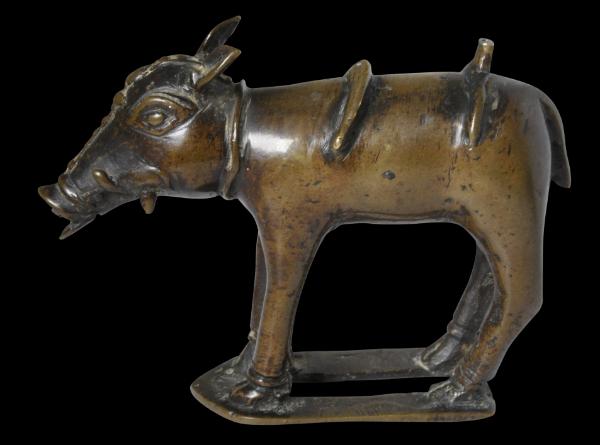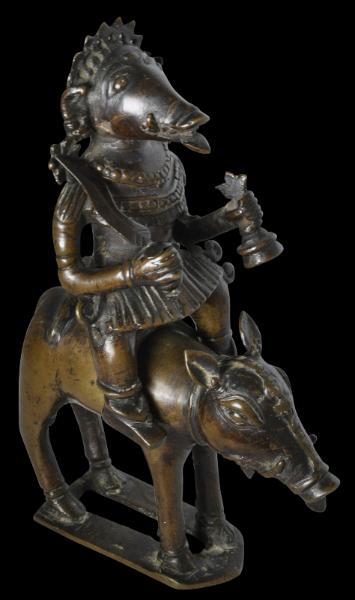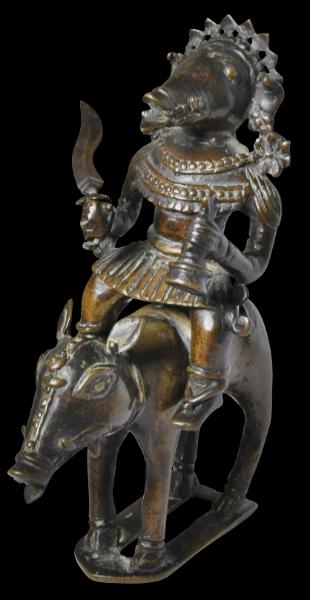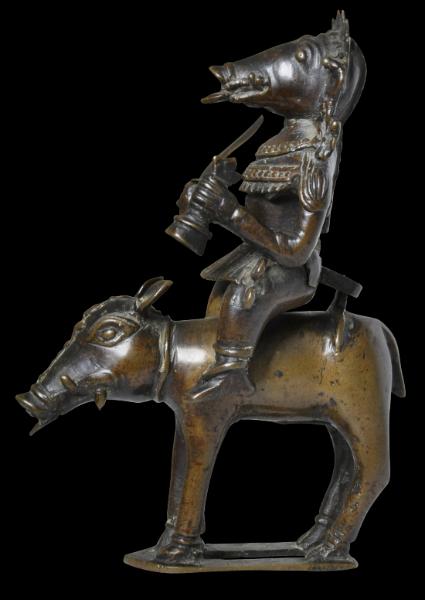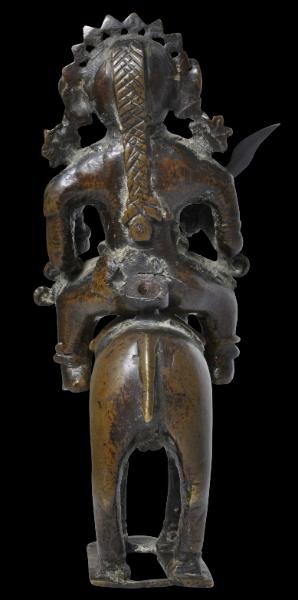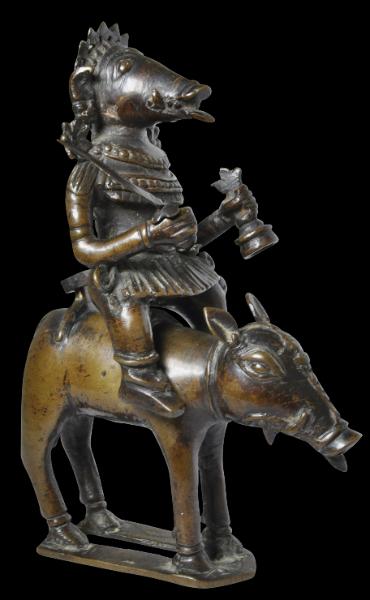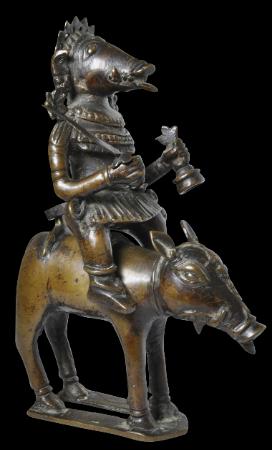
South Indian Bronze Panjurli
Bronze Image of Panjurli astride a Boar Mount
South Karnataka, India
19th century
height: 16.5cm
This unusual cast bronze ensemble of the boar-headed deity Panjurli astride an actual boar is part of the idiosyncratic oeuvre of the bhuta cult of Karnataka.
Panjurli is shown with a prominent, pieced
bhuta-style headdress, jewellery, and a skirt. He holds a bell in one hand an a movable sword in the other. Cast as a separate piece, Panjurli sits over his mount and is secured by means of a lug cast to his back.
The boar mount is finely cast and well proportioned.
Both items have a good, chocolate-brown patina.
‘Bhuta’ is a Sanskrit word that means ‘passed away’ or ‘spirit’. The term is also used to refer to the ancestor cult practiced in the Tulu Nadu region or South coastal Karnataka, India (Rond, 2011).
Bhuta ceremonies (bhuta kola) do not feature the worship of inanimate idols but the interaction between the audience and an oracle who receives the invoked spirit. Such ceremonies typically took place once a year and were sponsored by upper-class families usually from the Kshatriya caste. Dancers as oracles wore masks such as this as part of their elaborate head gear and costumes. Once the ceremonies were over, the masks were returned to the temples (sthaana) where they were worshipped as representations of the spirits.
Probably, Panjurli was worshipped since the origin of the
bhuta cult and was worshipped as the spirit of the wild animals that destroyed villages’ crops. Large numbers of boars invaded cultivated areas in Tulu Nadu hence the development of some kind of spirit that could be appeased to avoid this calamity.
Later, Panjurli was incorporated into the local Hindu pantheon as Parvati’s pet who spoiled the harmony of her garden on Mount Kailash. Shiva became so annoyed with Parvati’s boar that he killed it. Parvati was saddened at the loss of her pet and so to make amends, Shiva brought it back to life as a spirit that he sent to earth as a protective force.
References
Beltz, J., et al, Wenn Masken Tanzen: Rituelles Theater und Bronzekunst aus Sudwestindien, Museum Rietberg, 2009.
Rond, F.,
Bhuta: Masques & Objets Rituels des Espirits/Masks & Ritual Objects of the Spirits, Karnataka, Inde di Sud, Galerie le Toit du Monde/Indian Heritage, 2011.
Provenance
UK art market
Inventory no.: 2592
SOLD

